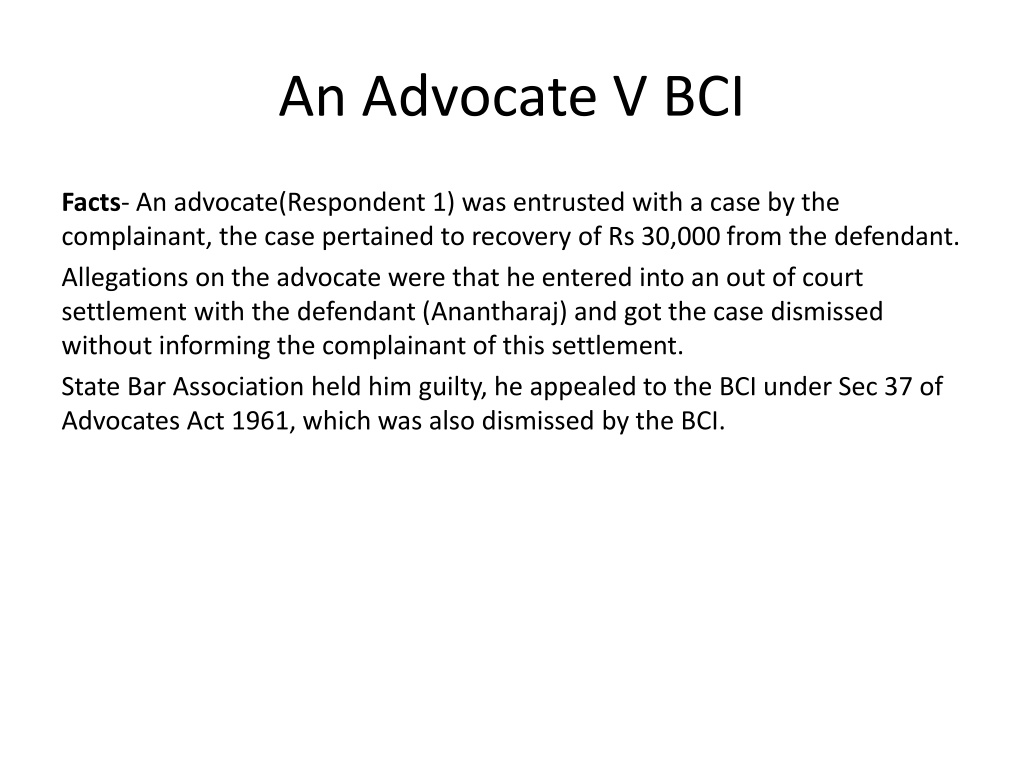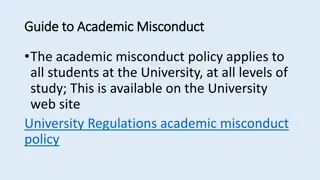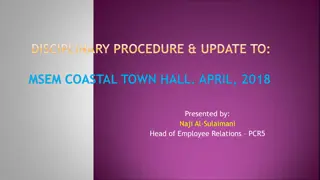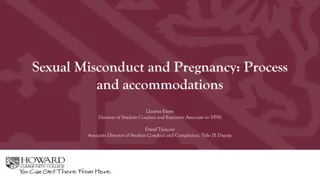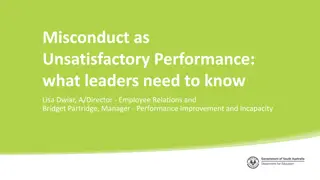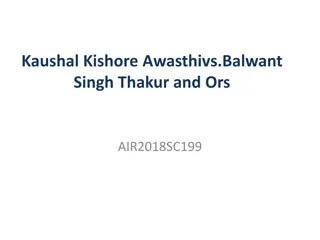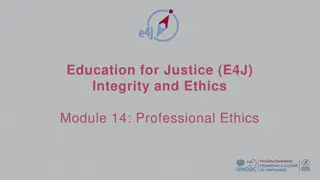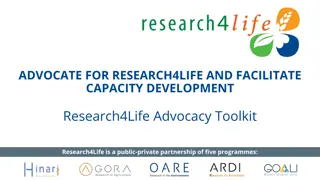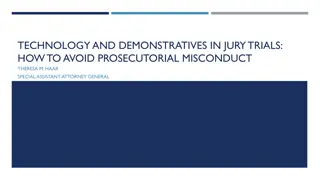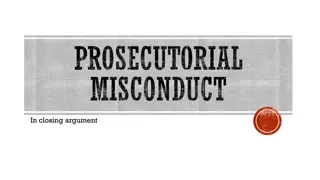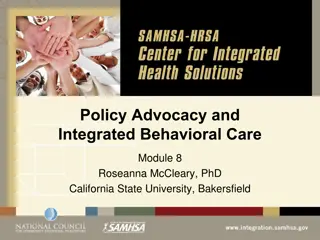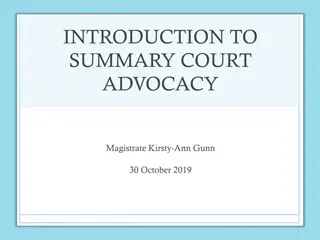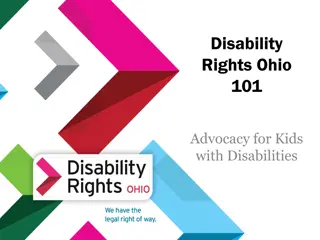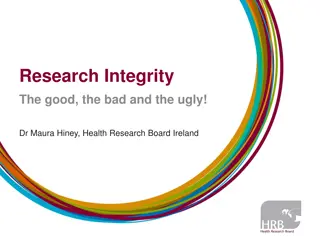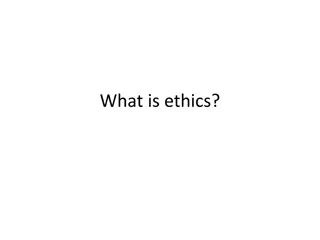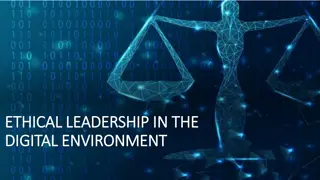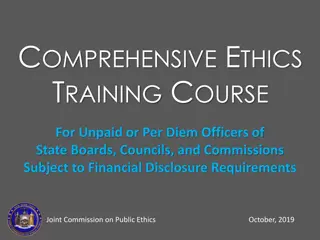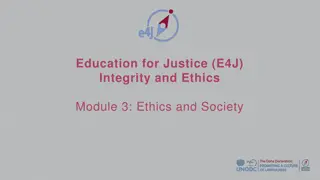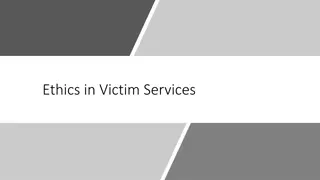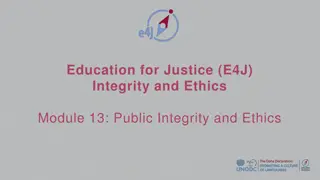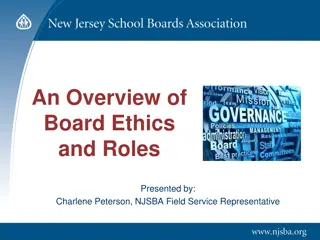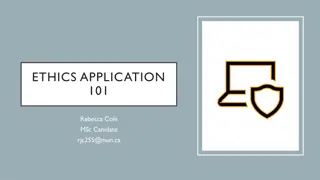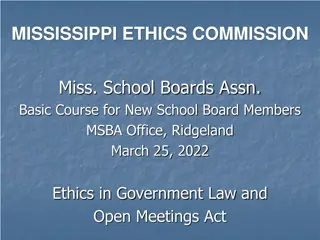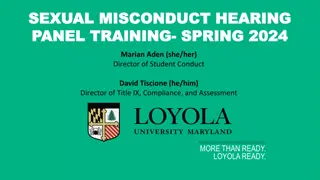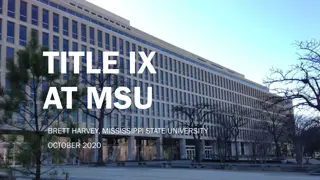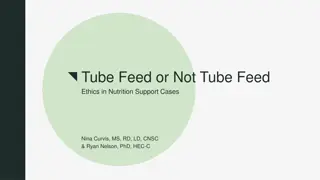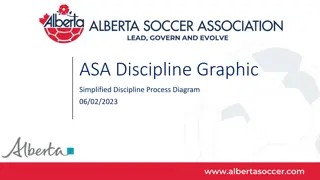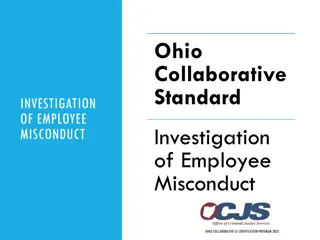Advocacy and Ethics: A Case Study on Professional Misconduct
An advocate faced allegations of entering into an out-of-court settlement without informing the complainant in a recovery case. The advocate was held guilty by the State Bar Association and the Bar Council of India (BCI). Issues of professional misconduct, negligence, and the need for specific charge framing were raised. The Supreme Court observed the importance of procedural fairness and the doctrine of benefit of doubt in legal proceedings. The advocate's defense was hampered by the lack of charge framing, highlighting the significance of due process in disciplinary actions against advocates.
Download Presentation

Please find below an Image/Link to download the presentation.
The content on the website is provided AS IS for your information and personal use only. It may not be sold, licensed, or shared on other websites without obtaining consent from the author. Download presentation by click this link. If you encounter any issues during the download, it is possible that the publisher has removed the file from their server.
E N D
Presentation Transcript
An Advocate V BCI Facts- An advocate(Respondent 1) was entrusted with a case by the complainant, the case pertained to recovery of Rs 30,000 from the defendant. Allegations on the advocate were that he entered into an out of court settlement with the defendant (Anantharaj) and got the case dismissed without informing the complainant of this settlement. State Bar Association held him guilty, he appealed to the BCI under Sec 37 of Advocates Act 1961, which was also dismissed by the BCI.
Issues Whether professional misconduct? Whether specific charge framing was necessary in the case to enable the advocate to make a proper defence? Whether the advocate is guilty of mere negligence or culpable negligence? Whether the doctrine of benefit of doubt applies in the case? the advocate-appellant is guilty of
Observations of Supreme Court Section 35 says that the state bar association can refer a complaint against an advocate to its disciplinary committee and the committee shall (after providing the advocate an opportunity of being heard) give its opinion. But procedure to be followed at hearing is not given in Sec 35, it is given in Part VII of BCI Rules. Proceedings under Sec 35 are quasi-criminal in nature, and therefore if an advocate is held guilty, it can be injurious to his honour earned by him in years of practice as his name can be removed from the State roll of advocates.
In Criminal law, the doctrine of benefit of doubt applies in the sense that when the guilt of an accused is not proved beyond doubt; he cannot be held guilty. There is a difference between mere negligence and culpable negligence (negligence with as guilty mind). To determine culpability, framing of charges is important which was not done in this case by the BCI which makes it difficult for an advocate to effectively defend himself. Framing of issues or substantial questions by the adjudicating body determines that the burden of proof is on which parties. Rule 8 of the BCI also provides that the procedure for trial of civil suits should be followed while determining a case before it.
Coming to the present facts, the complainant was a nominee of one Gautam Chand and he had no claim of his own, it appears. It was also admitted by the complainant that he kept no business accounts of his own and wasn t a taxable assessee. Rule 19 says that an advocate shall not act on anyone s instructions other than that of his client. BCI didn t give him a fair opportunity of showing cause, as the charges were not framed. Even if the BCI rules are silent wrt framing of charges, natural justice comes into play and they have to be framed for a fair trial .
If the BCI is not sure about the culpability of the advocate or if the evidence against him are not convincing, then benefit of doubt must be given to him. Finally, the SC ordered to re-examine the complainant as he himself admitted that he wasn t an assessee. The BCI has been entrusted with the questions related to professional ethics of advocates, hence the Supreme Court remitted the matter back to it for disposal. It will be for the BCI to decide whether it would constitute an imprudent act, a mere negligence or professional misconduct that deserves a punishment.
